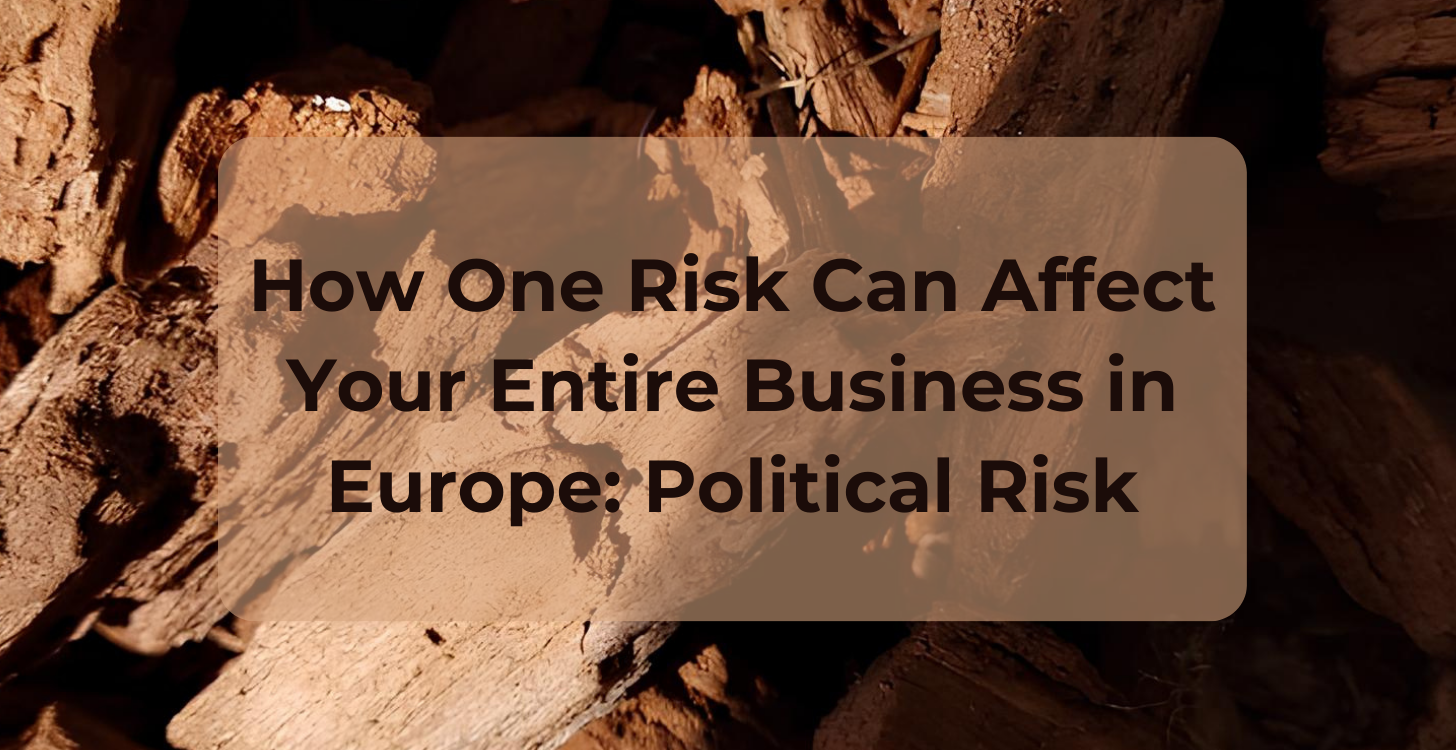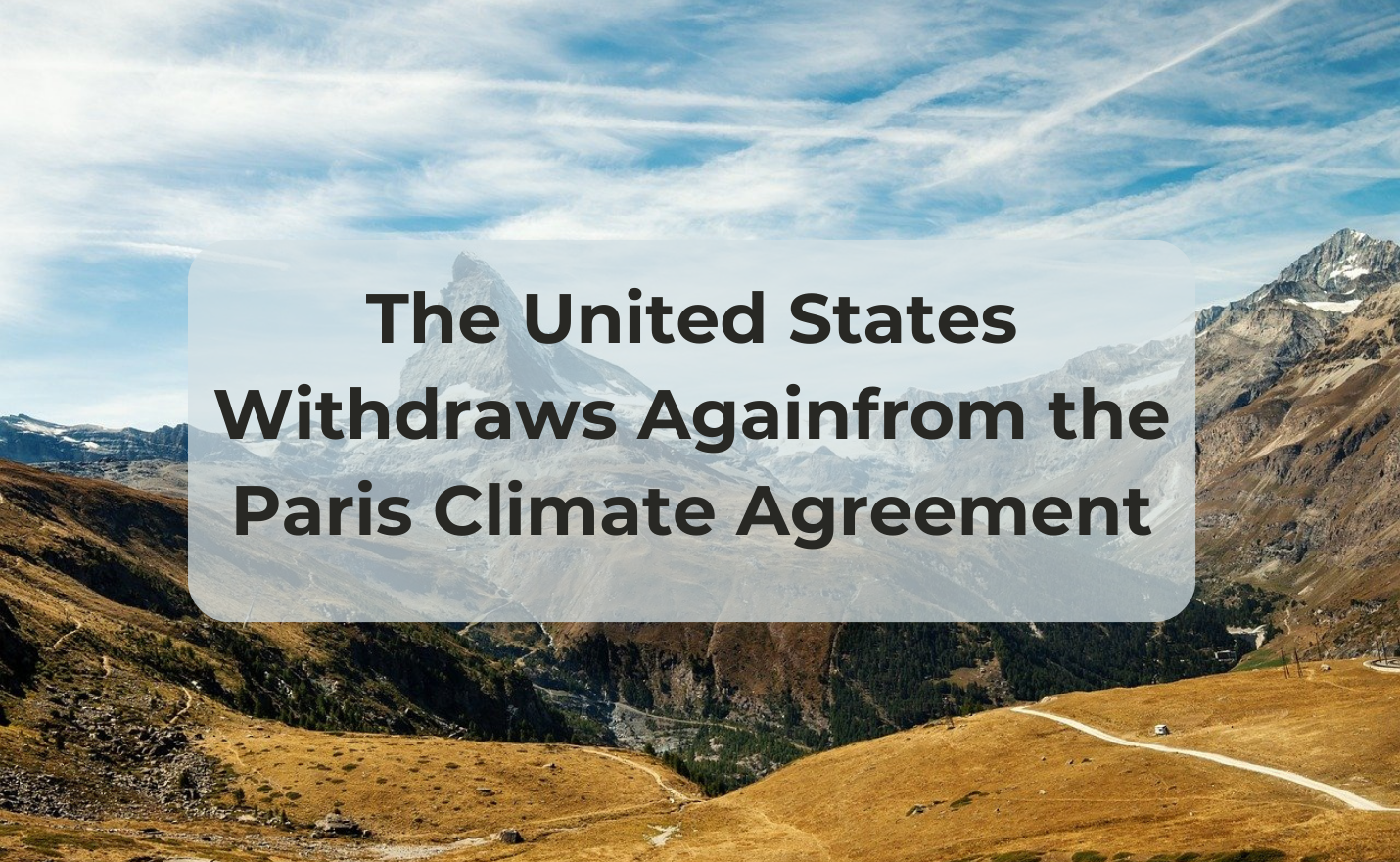Introduction: Understanding Political Risk in Europe
Political risk is an increasingly significant factor that can dramatically affect businesses operating in Europe. It refers to the likelihood that political events—such as changes in government policies, civil unrest, or international conflict—will negatively impact business operations. In recent years, businesses across Europe have experienced firsthand the effects of political risk. For example, the shifting political landscapes, Brexit, and the war in Ukraine have all contributed to increased uncertainty for European businesses. Moreover, political decisions made by other global powers, such as the United States, also play a major role in shaping Europe’s business environment. This article explores how political risk can impact your business in Europe, focusing on current trends, causes, consequences, and the future outlook.
The Growing Challenge of Political Risk
Political risk is no longer an abstract concept for businesses in Europe; it has become a pressing issue that companies must actively address. Recent trends indicate a noticeable decline in business confidence in both the UK and the Eurozone. For instance, businesses in Germany and France reported significant losses in 2024. PageGroup, a recruitment company, saw a 25% drop in profits in Germany and a 17% decrease in France compared to the previous year. These results reflect how political instability directly affects business operations (The Guardian).
Since the Brexit referendum and the aftermath of the COVID-19 pandemic, European businesses have become more cautious. The uncertainty surrounding Brexit’s final effects on trade relations has been particularly challenging for companies. As a result, many businesses are focusing on minimizing exposure to political risks by postponing expansion plans and cutting back on investments. The risk of changing policies or regulations adds another layer of complexity for companies already facing economic challenges.
How Political Risk Affects Business Strategy and Operations
Political risk has far-reaching effects on business strategy and operations. It can impact market access, pricing, consumer behaviour, and even company profitability. For example, the ongoing war in Ukraine has led to severe disruptions in supply chains, increased operational costs, and changes in energy prices, which have all affected industries such as manufacturing, logistics, and energy production. As a result, businesses in these sectors have had to rethink their strategies to remain competitive.
For instance, the war has increased energy prices, which directly affects businesses with energy-intensive operations. Companies are also facing logistical challenges due to the disruption of transportation routes, particularly in Eastern Europe. Additionally, political risk can change the regulatory landscape. For example, the imposition of new tariffs, customs regulations, and trade restrictions have created significant hurdles for businesses that depend on cross-border trade.
Consequences of Political Risk for Businesses
The consequences of political risk are severe and wide-ranging. In particular, businesses may face reduced profits, operational delays, and increased costs. A key consequence of political risk in Central Europe is the downgrade of credit ratings for several countries. This has led to a decrease in foreign direct investment (FDI) in these countries, as investors become more hesitant to commit capital to politically unstable regions. According to Reuters, this trend is further exacerbated by the shifting U.S. policies, which influence Europe’s economic stability (Reuters).
As political uncertainty increases, the costs of doing business also rise. Companies must factor in additional costs for compliance with new regulations, tariffs, and the potential for disrupted supply chains. For example, businesses may be forced to invest in securing alternative supply sources or relocate operations to mitigate risk. Some companies might even exit certain markets altogether to avoid the instability caused by political risk.
The Influence of U.S. Political Risk on Europe
While political risk is often viewed in the context of domestic European issues, external factors—especially from the U.S.—also play a significant role. Shifting U.S. foreign policies has a direct impact on Europe’s business environment. For example, during Donald Trump’s presidency, the U.S. administration shifted its focus towards strengthening ties with Russia and distancing itself from NATO. This shift in U.S. foreign policy created additional uncertainty for European businesses. Many companies had to reassess their strategies in response to this realignment, which led to increased geopolitical instability and trade challenges.
The U.S.’s approach to tariffs, trade agreements, and international diplomacy significantly affects European markets. For example, the imposition of tariffs on European goods by the U.S. has led to trade friction, increasing costs for businesses that rely on exports to the U.S. This has created an environment of heightened uncertainty, as companies must adapt to a rapidly changing global trade environment shaped by political decisions from both sides of the Atlantic.
An example of the real-world effects of political risk can be seen in Tesla’s performance in Europe. In January 2025, Tesla’s sales in Europe dropped by 45% compared to the previous year. This significant decrease is believed to be partly linked to the political activities of CEO Elon Musk, who has openly supported former U.S. President Donald Trump and engaged in political matters that have affected European policies. Musk’s political actions, including his influence on U.S.-European relations, may have contributed to consumer uncertainty and a shift in demand, highlighting how political actions can directly affect a company’s market performance (The Guardian).
The Impact of Political Risk in Specific European Markets
In specific countries, political risk has caused businesses to re-evaluate their market strategies. The conflict in Ukraine has had significant consequences for businesses operating in Eastern Europe. Many Western businesses have withdrawn from Russia due to the sanctions imposed in response to the invasion. As a result, these companies face substantial losses and challenges in attempting to re-enter the market. Political risk in this context is not limited to the immediate withdrawal from a market but also includes long-term repercussions, such as the nationalization of foreign assets and the prioritization of domestic businesses over foreign competitors.
The energy sector is another area where political risk is causing major disruptions. With the war in Ukraine, energy prices have spiked, forcing companies to reconsider their pricing strategies and operational models. Energy-intensive industries, such as manufacturing and chemicals, are particularly vulnerable to these shifts. The EU’s response to this crisis, which includes sanctions against Russia and an increased push for energy independence, has created new challenges for businesses reliant on stable energy supplies.
Understanding the Causes and Consequences of Political Risk
Political risk arises from several sources, including changes in government, policy shifts, geopolitical conflicts, and international trade disruptions. Government actions, such as changes in tax laws or the introduction of new regulations, can directly affect businesses. Similarly, geopolitical risks, such as war or shifting alliances, can disrupt trade routes, supply chains, and market access.
The consequences of political risk are often severe, impacting a company’s financial stability, market access, and operational efficiency. Political uncertainty can lead to lower consumer confidence, which in turn reduces demand for goods and services. It can also drive up costs, especially if businesses are forced to comply with new regulations or absorb the costs of supply chain disruptions. Over time, these risks can slow economic growth, reduce profitability, and diminish investor confidence.
Mitigating Political Risk: Strategies for Businesses
To effectively navigate political risk, businesses must adopt proactive risk management strategies. One key strategy is diversification. By spreading operations across multiple regions or establishing local partnerships, businesses can reduce their exposure to political instability in any single market. Diversification not only helps companies mitigate risks but also provides opportunities for growth in more stable markets.
Another strategy is scenario planning. Businesses should develop contingency plans that account for potential political risks, such as changes in regulations, government instability, or trade disruptions. By anticipating potential risks and developing flexible strategies, companies can respond more effectively to political changes. Additionally, staying informed about political developments and engaging in dialogue with local governments and stakeholders can help businesses stay ahead of potential risks.
The Future of Political Risk in Europe
Looking ahead, political risk will continue to be a key factor for businesses operating in Europe. The political landscape is evolving, with increasing political instability and shifting geopolitical dynamics. Populist movements, changing foreign policies, and the ongoing war in Ukraine are just a few of the factors that will continue to shape the business environment.
In response to these risks, businesses will likely focus more on regionalization. By focusing on local markets and creating more localized supply chains, businesses can reduce their dependence on high-risk regions. Moreover, technological advancements, such as AI-driven risk analysis tools, will enable companies to better predict and prepare for political disruptions.
Conclusion: The Importance of Managing Political Risk
Political risk is a powerful force that can affect every aspect of a business, from operations and profitability to market access and consumer confidence. As we’ve seen in the cases of Brexit, the war in Ukraine, shifting U.S. foreign policy, and the impact on companies like Tesla, political risk can have profound consequences for European businesses. By adopting strategies such as diversification, scenario planning, and staying informed, businesses can mitigate these risks and position themselves for long-term success.
With political risk remaining a significant concern, businesses must be agile and proactive in adapting to the changing political landscape. By managing political risk effectively, companies can navigate the complexities of the European market and continue to thrive in an increasingly uncertain world.
Our expert consultants specialize in political risk consulting, helping you identify vulnerabilities and secure your operations. Contact us today at https://tamver.eu/contact/ to take proactive steps and safeguard your business.





